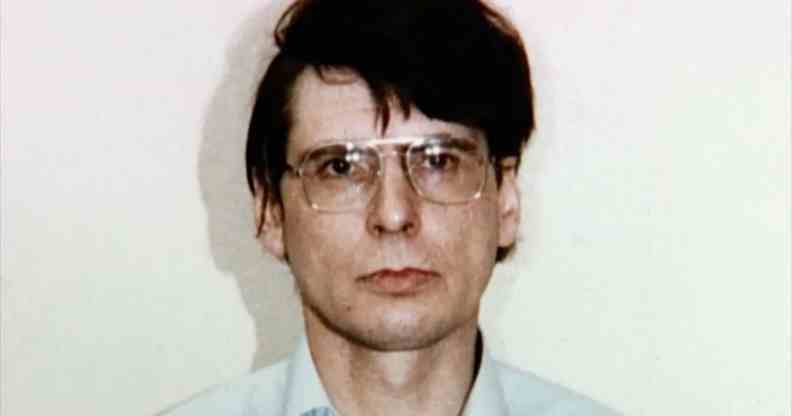Gay serial killer Dennis Nilsen ‘confesses to string of new crimes’ from beyond the grave

Serial killer Dennis Nilsen. (ITV)
The notorious gay serial killer Dennis Nilsen has confessed to a string of additional murders “from beyond the grave” in a new book based on notes he penned in jail.
Nilsen, whose story is told in the three-part ITV drama Des, revealed three previously unknown victims in a controversial autobiography set to be released next week.
His bid to publish the book was blocked by the government in the 1990s, but the publisher RedDoor Press was granted permission after the killer died in prison aged 72.
Titled History of a Drowning Boy, the memoirs were compiled from 6,000 pages of typed notes he left to a prison pen pal. They include a posthumous confession to a sex attack on a drunken solider 10 years before his first murder, as well as the strangulation of at least two previously unknown male victims.
Nilsen was known to have killed at least 12 men and boys, most of whom were gay or homeless, in a horrific six-year spree between 1978 and 1983 – but only seven victims were identified, and the true number of deaths was never clear.
He was caught when police discovered human remains in a blocked drain at his London flat. It was later revealed that he’d been boiling, burning and sometimes flushing the dismembered bodies of his victims as the final steps in a chilling ritual he’d developed.
Nilsen’s motives, which had long been a mystery to investigators, will reportedly be uncovered in the new book. He denies cannibalism but admitted he had previously contemplated the “culinary possibilities” of those he killed and describes one body part as like “beef rump steaks”.
The graphic details have prompted fury from the families of Nilsen’s victims, who are outraged that the killer’s words will be made public, the Sunday Times reports.
One bereaved relative said it was as if Dennis Nilsen is “still laughing at us from beyond the grave,” while the sister of survivor Carl Stottor suggested the book was “morally wrong”.
“Carl fought all his life to have those memoirs stopped,” said Julie Bentley. “When that evil man died, I thought it was over. Why should he have his say when the victims can’t have their word?”

